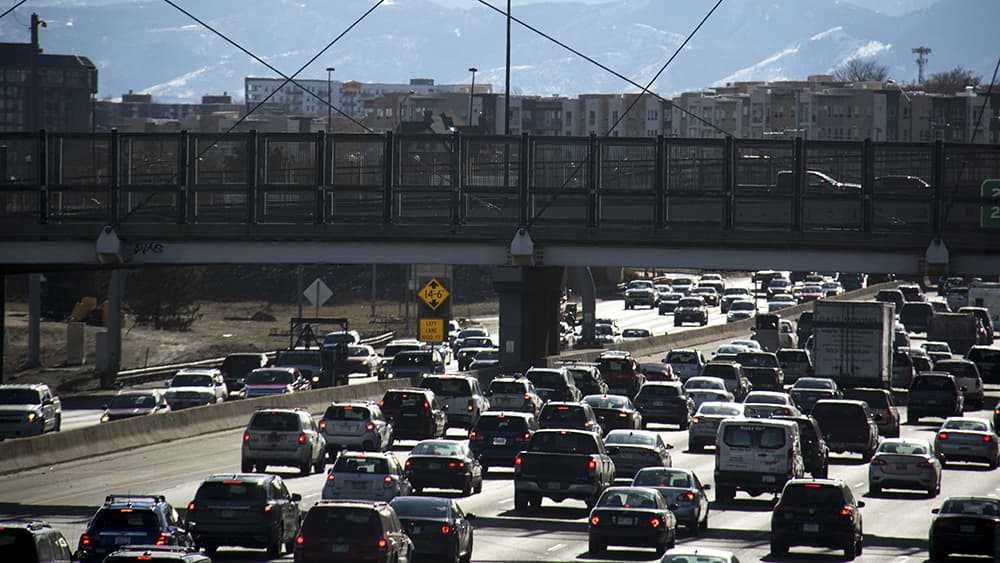Last year Denver took its first steps towards building a comprehensive air quality monitoring system throughout the city. Using new low-cost devices, the city has slowly built one of the national models for monitoring.
The state currently runs five air quality monitors in the north part of Denver using funding from the Environmental Protection Agency. This year, the city set up nine others in schools across Denver. By 2021 a total of 40 schools will have air quality monitors, a project funded through a $1 million grant from Bloomberg Philanthropies.
But knowing where pollution is and what's causing it is just part of tackling Denver's dirty air.
In a presentation to the Denver City Council's safety committee Wednesday, Gregg Thomas, the director of the Environmental Quality Division of the Denver Department of Health and the Environment, laid out the main causes of pollution in Denver and expectations for the future.
While oil and gas production has caused regional effects in terms of air pollutants, Denver's biggest polluter is vehicles, and monitoring shows a higher concentration of pollutants downwind from the highway.
"That may be basic," he said referring to a study his division conducted," but it helps us going forward with how we can communicate what it means to live near a major highway."
Denver Mayor Michael Hancock wants to expand its air quality monitoring network to become the largest in the country with a network of 100-plus monitors, even while his administration supported widening I-70 to make more room for cars in north Denver, which bears the brunt of pollution in the city.
While transportation emissions are a clear problem for Denver, Thomas noted that lowering them may be a task more easily accomplished with state or federal regulations. The state is trying to go that route. Last year, the state of Colorado adopted lower car emissions standards, which would require all new cars sold in the state to average 36 miles per gallon by 2025.
In August, the state also adopted the zero-emission standard, a regulation that requires at least 5 percent of the cars sold in the state to be electric. The Trump administration has made moves to deny states the right to set their own standards, and Colorado has joined a federal lawsuit to stop him.
"We need to be looking at anything that affects the emissions from vehicles sold in the city, and that is not a local regulation," Thomas said. "We don't want to roll back our emissions standards, we don't want trucks to be dirtier than they were ten years ago."
For almost a decade, tailpipe emissions in Denver have dropped despite an increase in the number of miles driven in its streets, according to the presentation, because of better fuel efficiency. EPA models show those trends continuing, but those models may change if automakers are not forced to keep making more efficient or electric vehicles.
Without further regulation, the city is trying to improve walking, biking and transit options in hopes more people use it. The city took a step earlier this month by creating its own transportation department, a move that more than 70 percent of the city's voters approved.












